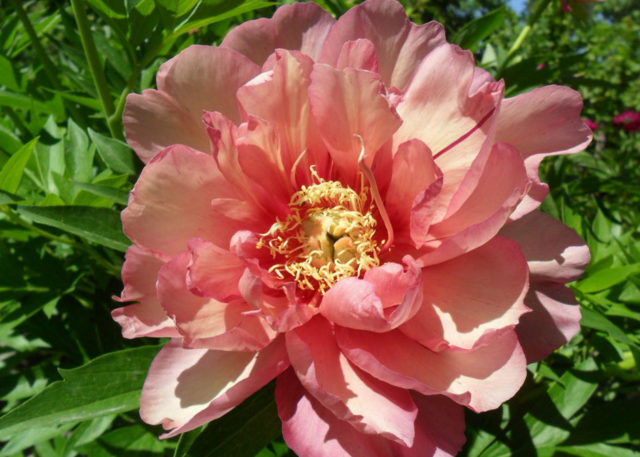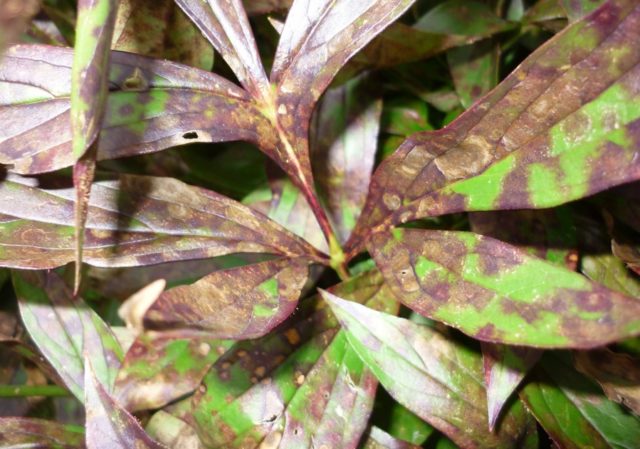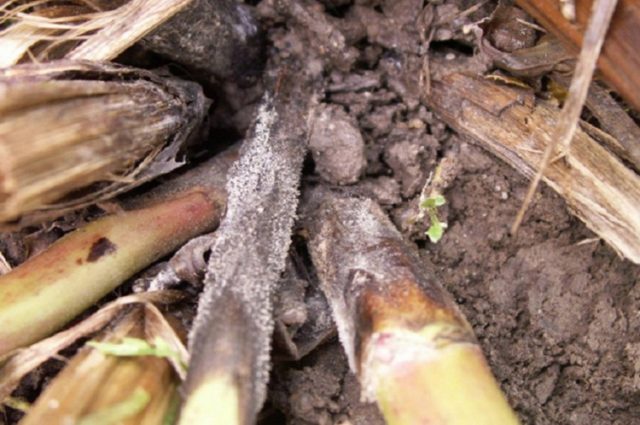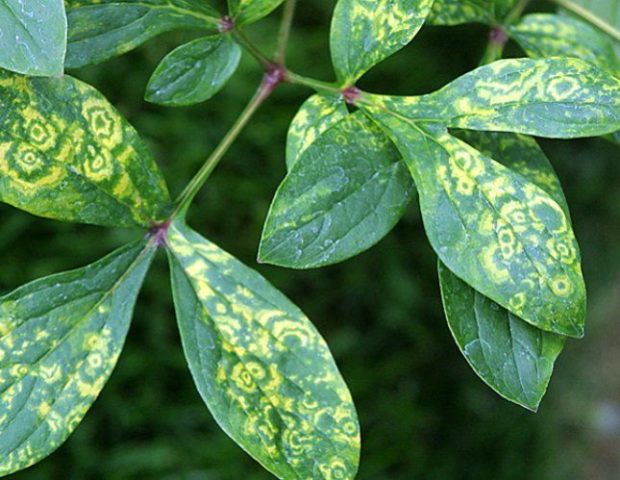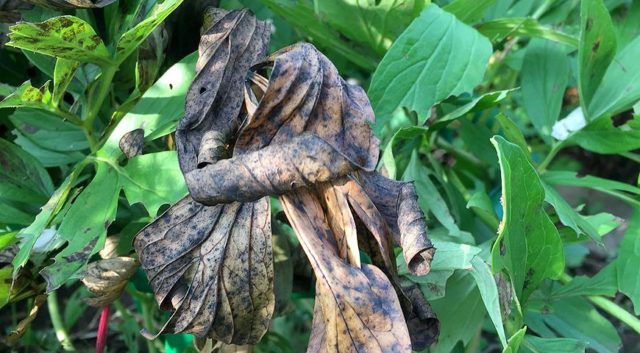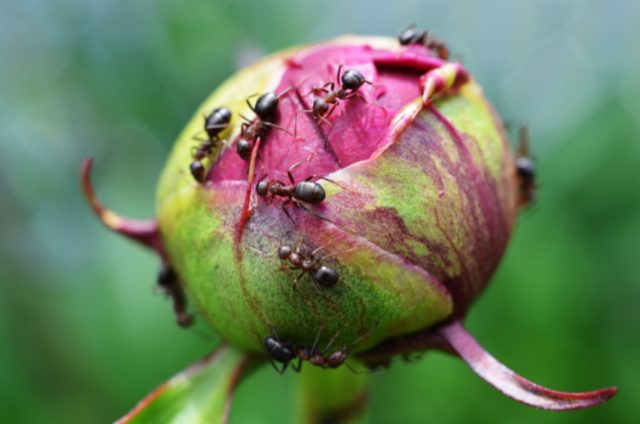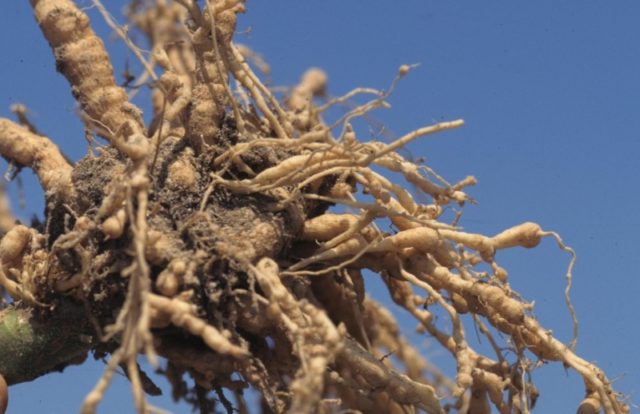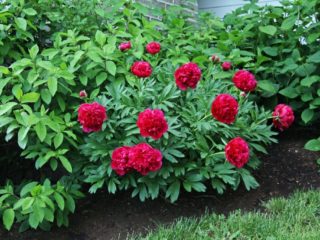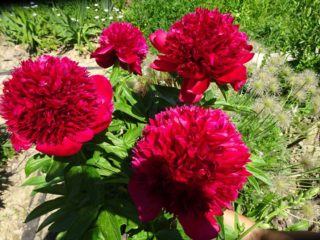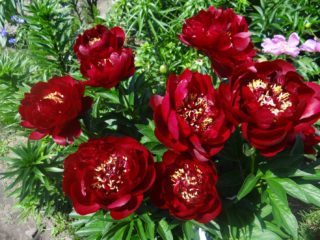Content
Peony Hillary is a beautiful hybrid flower that was bred not so long ago, but has already gained popularity. It is perfect for growing in a flowerbed in front of the house or for decorating a garden plot. At the same time, it requires minimal maintenance and is easily adaptable to a new place.
Description of peony ITO-hybrid Hillary
Ito-peonies is a hybrid plant that was obtained by crossing different varieties of herbaceous and tree-like peonies. The first positive results appeared in the Japanese agricultural scientist Toichi Ito, whose name was given to the new hybrid. Its main advantages are its unusual beautiful yellow color, lush foliage and a long flowering period.
The Hillary variety was developed in the mid-90s. 20th century and combined the best qualities of parent plants.
Peony Hillary (Hillary) is a voluminous bush with dense foliage up to 90-100 cm high. Its stems are very strong and thick, they can bend slightly under the weight of the flowers, but do not fall to the ground and do not require additional support.
After transplanting, the plant grows very quickly, but begins to bloom no earlier than a year later.
The roots of the "Hillary" variety, like most peonies, are spreading and are located in the upper layers of the soil. As the bush grows, the roots grow stiff, therefore, the older the plant, the harder it is to replant.
The leaves of the peony are dense with carved edges of a rich green color. They form a so-called "pillow" around the peony, which protects the root system from the sun's rays and helps to retain moisture in the soil.
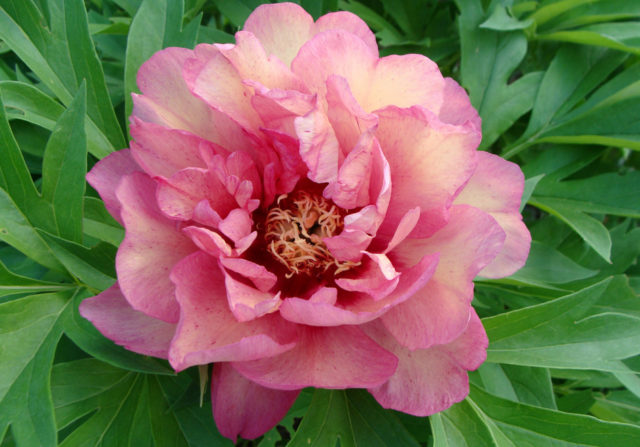
The lush foliage of the peony remains green until the coldest
Peony "Hillary" belongs to the sun-loving plants, therefore, when planted in a shaded place, it may not bloom.
The variety is characterized by high frost resistance, it can be grown in the middle lane and Siberia. It is also common in North America, Europe and Asia.
Flowering features
The flowers of the "Hillary" peony are semi-double in structure, very large, reaching a diameter of 16-18 cm. The petals are straight, slightly indented. Their colors can range from deep pink to delicate pinkish yellow. At the same time, the color is heterogeneous, with a color transition and blotches. During flowering, it can change - the outer petals turn pale, and the middle remains bright.
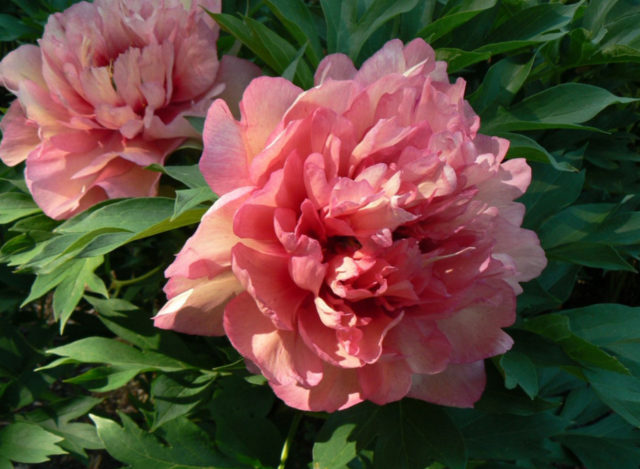
Ito hybrids were obtained by crossing the lactic-flowered and tree-like peony
The flowering time of the Hillary peony is mid-early, the duration is about a month. The flowers do not bloom at the same time, but gradually, due to which peonies of different shades can immediately be on the bush. In total, about 50 buds bloom during the season.
Good illumination plays an important role for the abundant flowering of the "Hillary" variety, in the shade it blooms much weaker.
Application in design
Peony "Hillary" is perfect for decorating garden beds. It goes well with lilies, irises, as well as low-growing forget-me-nots and stonecrops. Still, peonies look best when planted separately from other flowers, when nothing distracts attention from their beauty.
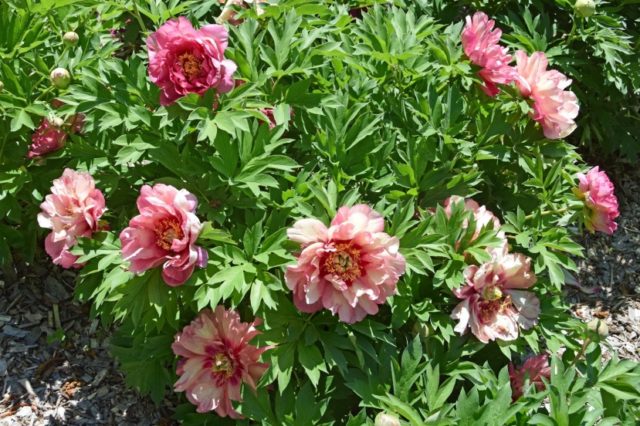
Peony bushes look very beautiful in open areas
Also, the Hillary variety looks good along the paths.
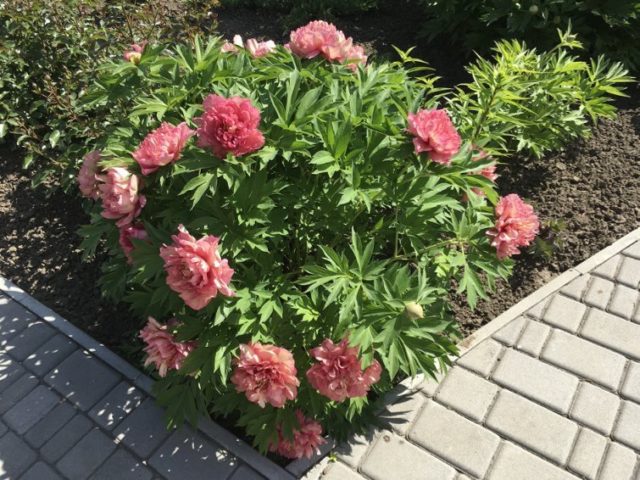
Peony is suitable for garden zoning
You should not plant a peony near the walls of buildings or near tall trees, as the flower does not grow well in the shade.
It is not recommended to plant Hillary peonies too close to each other or to plants with a developed root system, as they may lack nutrients.
As for growing on balconies, usually low-growing varieties are used for this. But you can still grow the Hillary peony. An important condition is that there must be enough room in the pot or flowerpot for root growth.
Reproduction methods
The only suitable breeding method for the Hillary peony is by dividing the bush. If you try to propagate a plant with seeds, then the result will be a flower with completely different species characteristics.
When dividing the bush in the spring, remember that the Hillary peony will grow quickly, but the root system will not have time to reach the required size to provide sufficient moisture. In this case, it is necessary to establish regular watering and protection from direct sunlight.
The division in the fall allows the root system to grow strong enough for the onset of frost to calmly survive the winter. It is held in August or September. First, cut the isthmus with a sharp knife, and then carefully divide the roots. The parts should be approximately the same and have 3-5 buds.

When separating, you need to act carefully so as not to damage the roots.
Immediately after separation, the roots are treated with a fungicide to avoid possible infection, and then the peonies are planted in the ground.
Landing rules
It is best to plant in late summer and early autumn, so that the plant has time to adapt to a new place and gain strength before the onset of cold weather.
Since the Hillary ITO hybrid peony grows for a long time in one place, special attention should be paid to the choice of a site for planting. This variety prefers warm places, protected from drafts. It should also be borne in mind that the ground should not be too wet, therefore, close proximity of groundwater should be avoided.
Peony "Hillary" does not like shade - it should not be planted near buildings and tall trees.
Landing is done as follows:
- First, you need to prepare a large pit 50-60 cm deep and 90-100 cm wide.Pour gravel or sand at the bottom about 1/3 of the depth to create drainage.
- Add organic fertilizers (ash, humus), sprinkle with earth to the middle and leave for a week to let the soil settle.
- Place the peony in a hole so that the buds are at a depth of about 5 cm.
- Cover with soil or a mixture of humus, sand and earth in equal proportions.
- Compact the soil around the flower, water and mulch.
If all the conditions are met, the peony will take root well in a new place, but it will begin to bloom no earlier than a year after planting.
Follow-up care
Although the Hillary peony is unpretentious, it is still worth following certain rules for caring for it, especially at first.
The care of this variety is as follows:
- watering - it is important to regularly moisturize, while avoiding the accumulation of water. If, with a lack of moisture, the flower becomes less lush, then its excess can lead to rotting of the roots and the subsequent death of the plant;Advice! During the period of heavy rains, when it is impossible to control the humidity, it is recommended to add special agents to the soil to prevent rotting (for example, "Alirin").
- top dressing - in the spring it is useful to apply organic fertilizers, before the "Hillary" peony blooms, it is good to use nitrogen, and closer to autumn - potassium-phosphorus mixtures;
- regular loosening - contributes to the saturation of the soil with oxygen, and also helps in the fight against weeds;
- mulching - allows you to protect roots that are close to the surface, and also retains moisture and nutrients.
It is better to replant peonies in the fall, not in the spring.
The first year after transplanting, the Hillary peony may look sluggish, but with proper care, the plant recovers quickly.
Preparing for winter
In the fall, plants need feeding, which will help them survive the winter and promote budding for the next season. Use a potassium-phosphorus mixture in dry or liquid form. When applying fertilizers, 25-30 g of the mixture is poured under each bush after watering. If you take a solution, then you need to make sure that it does not fall on the leaves (this can lead to burns).
In late autumn, when severe frosts begin, ITO-peonies are cut off, leaving stumps 2-3 cm high. Cutting points can be sprinkled with ash.
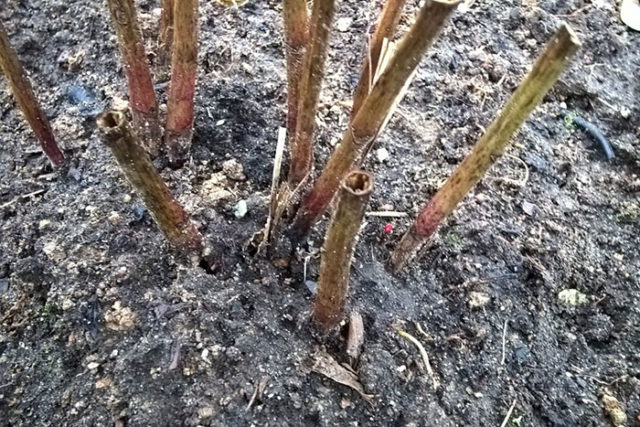
In the fall, the peony is pruned so that the stems do not rot
The Hillary variety is distinguished by good frost resistance, therefore, it does not need shelter for the period of cold weather. The only exceptions are planted specimens - they are recommended to be covered for the winter with spruce branches or pine needles.
Pests and diseases
Peonies are very resistant to various diseases and pests, but still there are those that pose a danger to flowers.
The main diseases of pions:
- rust - orange or reddish-brown bulky spots, consisting of spores, appear on the leaves. When such formations appear, diseased leaves should be torn off and burned, otherwise the spores will be carried by the wind and infect other plants. The peony itself needs to be treated with 1% Bordeaux liquid;
- gray rot - a dangerous infection that affects all parts of the "Hillary" peony. External manifestation - gray bloom and brown spots on the leaves and stems. The disease spreads very quickly and leads to the death of the bush. When the first symptoms appear, the infected parts must be removed and burned, and the peony must be treated with a fungicide;
- leaf mosaicc - a virus that is manifested by the appearance of light green spots or stripes on leaf plates. The disease cannot be treated, therefore, a peony with signs of infection must be destroyed;
- verticillary wilting - most often manifests itself during the flowering period. At the same time, the peony looks healthy outwardly, but begins to wither. The infection gets inside the plant. It can be detected by the darkened vessels on the cut of the stem. It is impossible to cure the disease, so the affected bush is burned, and the land is treated with bleach.
Peony "Hillary" can also suffer from some pests: - ants - they are attracted by the sweet syrup that forms on the buds. In doing so, they eat leaves and stems. To get rid of the invasion, it is necessary to treat the bush and the ground around it with repellents;
- rootworm nematode - affects the roots, forming growths on them, in which the worms hide. It is impossible to get rid of them, therefore, the affected peony must be pulled out and burned, and the earth must be treated with bleach.
Conclusion
Hillary's peony is an unusual cultivar with vibrant flowers and lush green foliage. It is very unpretentious, does not require special care, tolerates cold well and is highly resistant to diseases and pests. At the same time, it looks very impressive in the garden area, having a long flowering period.
Peony Hillary reviews
